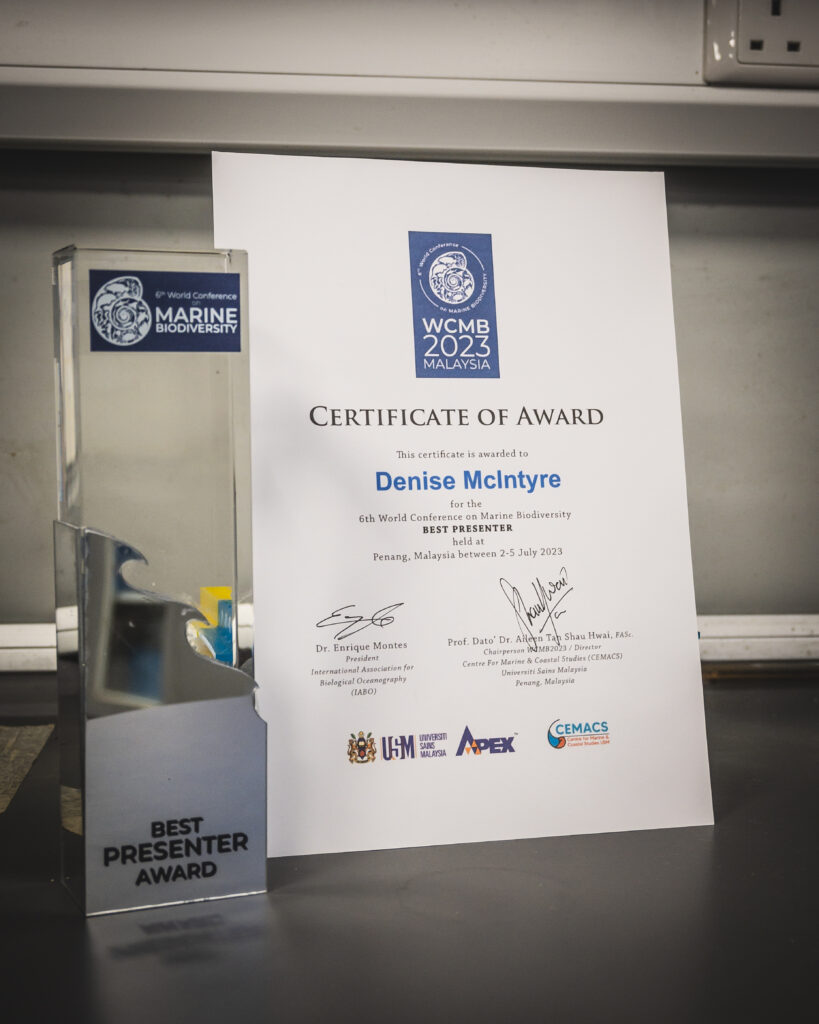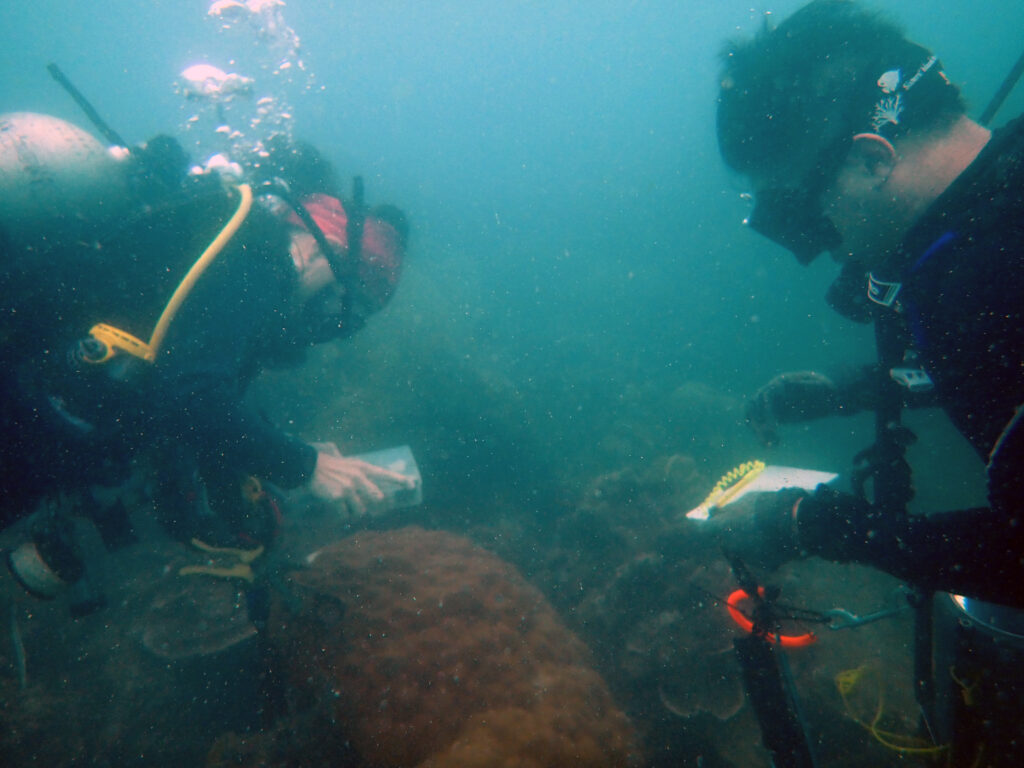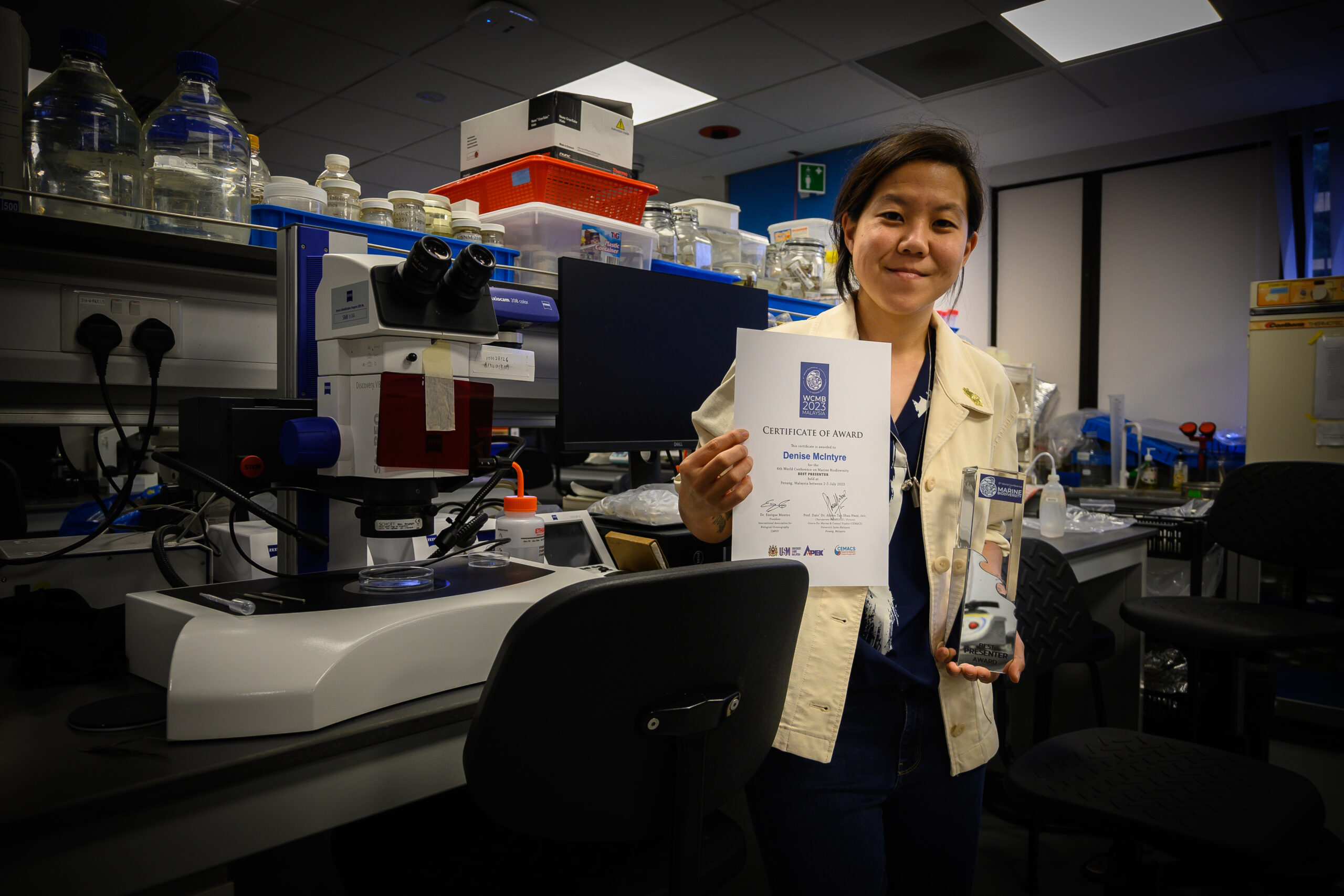Shining at the 6th World Conference on Marine Biodiversity – Ms Denise McIntyre
Second-year Life Sciences undergraduate student, Denise McIntyre, won the best student presenter at the recent 6th World Conference on Marine Biodiversity (WCMB), organized by the International Association for Biological Oceanography (IABO). This conference was held in Penang from 2nd to 5th July 2023 and received more than 400 participants from over 25 countries, discussing issues surrounding marine biodiversity losses in the Anthropocene.
Denise won the award for presenting her study examining the impact of fishing lines on coral reef organisms which was her UROPS project under the guidance of Dr Zeehan Jaafar from the Department of Biological Sciences. Denise shared that abandoned, lost, or otherwise discarded fishing gear (ALDFG) represents a major sea-based source of marine debris and contributes to marine plastics. A recent study even showed that fishing lines comprise 37% of ALDFGs along the coastlines of Singapore. However, the impacts of fishing lines on coral reef organisms are poorly understood which led her to take up this study to characterize the impacts of fishing lines on sessile coral reef organisms.


She was one of three students to be awarded the prize, from a category that included both undergraduate and postgraduate students. As a mature student who started undergraduate studies later in life, Denise struggled with feelings of inadequacy or not being up to par. This opportunity to attend the 6th WCMB conference and win the best student presenter award validates the hard work that she has put into this project.
Denise attributes her accomplishments to the support of her supervisor, peers, teammates, as well as generous funding from SeaKeepers Society Asia and NUS. This boost has given her the confidence to delve further into marine research and continue pursuing her passion in marine conservation.
“I am only in my second year of undergraduate studies at NUS, under the CHS curriculum. I hope to continue working in marine sciences after graduation. I strongly believe in the importance of science communication and ensuring that scientific information can be easily assimilated into everyday news. To this end, I will look at opportunities to bridge efforts of scientists, citizen scientists, and stakeholder communities for marine conservation. If given the opportunity, I wish to pursue a higher degree in marine ecology and conservation.”
– Denise McIntyre, Year 2 Life Sciences, 2023
Photo Credits: Clement Koh and Denise McIntyre

